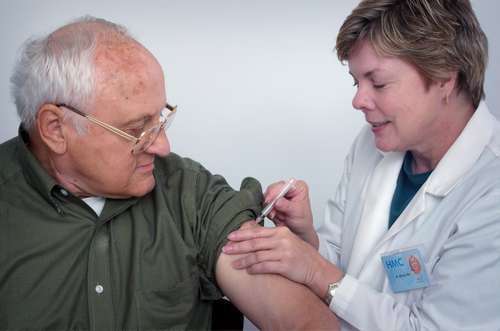Your smile doesn’t stop being important just because the years are adding up. In fact, as we age, taking care of our teeth and gums becomes even more critical.
Proper dental care for elderly individuals isn’t just about keeping teeth sparkling; it’s about protecting your overall health and well-being.
Whether you’re caring for your own oral health or helping a loved one, this post will provide you with some practical tips that make maintaining healthy teeth in seniors a walk in the park. Just keep reading!
Common Senior Oral Health Problems

3D Illustration of a Dentist and a Troubled Tooth | Pixabay
Before we go into proper dental care for the elderly, let’s first talk about some of the oral health problems many seniors face. Knowing these challenges can help you understand why taking care of your teeth and gums is so important.
Tooth Decay and Cavities
As we age, our teeth become more prone to decay. Changes in diet, reduced saliva production, and neglecting oral hygiene over the years can lead to cavities.
Tooth Loss
Tooth loss is common in older adults, often due to gum disease or untreated decay. Missing teeth not only affect your ability to chew but can also impact your speech and self-esteem.
Teeth Discoloration
Over time, teeth naturally lose their bright white colour. Years of coffee, tea, or smoking can leave teeth looking dull and stained, making discoloration a frequent concern.
Dry Mouth
Dry mouth, or xerostomia, is often caused by medications or certain health conditions. Without enough saliva to protect your teeth, you’re at higher risk for decay and gum disease.
Sensitive Teeth
If your teeth feel uncomfortable when drinking hot tea or eating ice cream, you might be experiencing sensitivity. This happens when the enamel wears down, exposing the sensitive layers underneath.
Denture-Induced Stomatitis
This is an inflammation of the mouth’s tissues caused by poorly fitted or unclean dentures. It can lead to redness, swelling, and even infections if not treated properly.
Thrush
Thrush is a fungal infection that can appear as white patches on the tongue or cheeks. Seniors with weakened immune systems or who wear dentures are more prone to this condition.
These issues might sound daunting, but the good news is that with proper care and attention, most of them can be prevented or managed effectively. So, let’s go explore how to keep your mouth healthy and happy!
How to Maintain Proper Dental Care for Elderly
Taking care of your teeth and gums as you age doesn’t have to feel like a chore. With the right habits and a little extra attention, you can keep your smile strong and your mouth healthy.
Here’s how:
1. Maintain Good Dental Hygiene
Good oral care starts with the basics. Brush your teeth twice a day with a soft-bristled toothbrush and fluoride toothpaste.
Don’t forget to floss daily to remove food particles and plaque from between your teeth. If flossing feels tricky, try using floss picks or water flossers – they’re easier on the hands and gums.
Consistent elderly dental hygiene helps prevent cavities, gum disease, and bad breath, so keep those routines going strong!
2. Use an Antibacterial Mouthwash
An antibacterial mouthwash is like a superhero for your mouth. It kills bacteria that can cause gum infections and bad breath, leaving your mouth feeling fresh.

The right mouthwash can ensure proper dental hygiene | Unsplash
Swish it around after brushing or whenever you need a quick pick-me-up during the day. Think of it as an extra layer of protection for your teeth and gums!
3. Drink Plenty of Water
Water is your best friend when it comes to oral health. It keeps your mouth hydrated, which helps prevent dry mouth – a common issue for seniors.
Plus, drinking water washes away food particles and bacteria. Aim for at least 6-8 glasses a day to keep your smile happy and healthy.
4. Control Sugar Intake
Sugary snacks and drinks might taste good, but they’re no friends to your teeth. Too much sugar can lead to tooth decay, especially when saliva production is lower.
Opt for healthier options like fresh fruits or nuts, and if you indulge, rinse your mouth with water afterward. This simple step can do wonders for senior oral health.
5. Avoid Tobacco Products
Smoking or chewing tobacco doesn’t just stain your teeth – it increases your risk of gum disease and oral cancer.
Quitting might feel tough, but it’s one of the best steps you can take toward maintaining healthy teeth in seniors. Your teeth, gums, and overall health will thank you for it!
6. Regular Dental Visits
Seeing your dentist regularly is a must for proper dental care for elderly individuals. Your dentist can catch problems early and provide professional cleanings to keep your teeth in top shape.
Aim for a check-up at least twice a year, or more often if your dentist recommends it.
7. Increase Fluoridation
Fluoride isn’t just for kids – it’s crucial for seniors too! Use fluoride toothpaste or consider a prescription fluoride gel if your dentist recommends it. Fluoride strengthens tooth enamel, making it less likely to develop cavities.
8. Know Your Recommended Calcium
Strong teeth need strong bones, and calcium plays a big role in keeping them healthy. Make sure you’re getting enough calcium through your diet or supplements.
Foods like milk, cheese, leafy greens, and almonds are great choices. Think of calcium as the building block for your smile!
Final Thoughts: Prioritize Your Dental Health

Senior man smiles and gives a thumbs up | Pexels
Dental care is just as important in your golden years as it was when you were younger – perhaps even more so. A healthy mouth can improve your overall well-being, boost your confidence, and keep you smiling for years to come.
The tips we’ve shared, from maintaining good oral hygiene to visiting your dentist regularly, are simple but powerful steps toward better senior oral health.
Don’t wait – start incorporating these practices into your daily routine today. Your smile deserves it!




